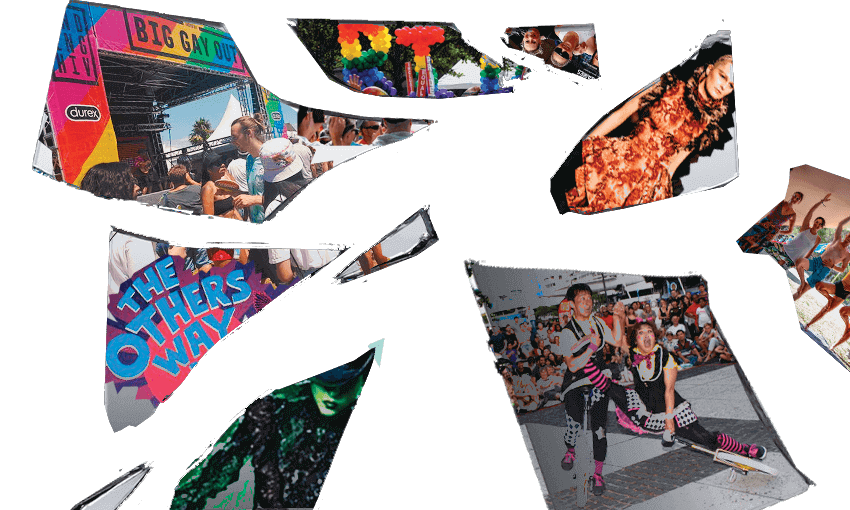This latest shift into red could be the last for many artists, writes Sam Brooks.
I had the good fortune to be out of phone service when the push notifications came through. I also had the good fortune to get into a friend’s car and have them ask warmly, but with resignation:
“Have you heard the news?”
This friend, like myself, works in the arts. The kind of arts that require many people to be in the same room. The kind of arts that put both artists and audiences in the line of fire for a virus that wants to be shared more than any experience does. The kind of arts that can exist in a time of Covid-19, but not thrive.
There was only one piece of news it could be.
“Red light at 11.59 tonight.”
The sad thing is that we were expecting it. The word “red” had already become a dirty word by the start of the new year: a sentence that started “If we go into red…” didn’t need to be finished. If we, the nation, went into red then a show that needed more than 100 people in a room to break even would have weeks, months, maybe even years of planning cut down in an instant. Red is a lockdown that only applies to people who make their living from the arts.
We spent the next two hours driving home to Auckland. As we came back into service, the messages started drifting in on the phone: “We’re fucked”, “How was the last event you’ll attend this year?”, “[Name of event] cancelling!”, “[Name of event] cancelled!”.
In the car, we talked about friends who would be caught out. Friends who were two weeks into a six-week gig and didn’t have a job come 11.59pm; friends who had planned festivals for months and years; friends who don’t just rely on the arts for a pay cheque, but a sense of purpose.
These conversations aren’t going to stop anytime soon. The longer we stay at red, the more cancellations we’ll have. Behind every cancellation, though, are artists whose livelihoods have been ripped away from them. Take Auckland Pride Festival, among the first events to cancel. Eighty events wiped out by one press release. Hundreds of artists impacted, thousands of audience members with gaps in the calendar.
Audiences can fill gaps, easily. Artists, not so much.
The shows that can go ahead are barely any luckier. Events with fewer than 100 people still have to socially distance, so are going ahead with limited capacities, and the looming threat of an increasingly infectious virus. Artists and producers still have the anxiety, and the uncertainty, of coming into work every day knowing that tonight could be the night they have to cancel, the night that venue pops up as a location of interest, hell, maybe even the night they test positive themselves.
Nobody is arguing against the restrictions; we know why they’re there at this point. However, the removal of broad restrictions has been replaced with the burden of personal responsibility: “Do I put myself and my audience at risk to do my art?”
It should be simple: no piece of art is worth getting sick or getting someone else sick for. It’s a horrible onus to put on artists and producers, and my heart goes out to those who have to come up with an answer to that question. There are no right answers, just unpleasant compromises.
These anxieties aren’t unique to the live arts. These anxieties descend on everybody who goes into a workplace or supermarket, or has an after-work beer with a mate. But these anxieties hit differently for artists. It’s the anxiety of running towards the finish line at full tilt, not knowing if the earth could suddenly open up, swallowing you and your career with one location of interest notification.
Yes, there’s government support (not enough), but government support doesn’t get you your time back. It doesn’t get the time you’ve spent twiddling your fingers because you can’t do the thing that you make a living from, the thing you love, the thing you’ve devoted your life to.
A pandemic requires that society makes sacrifices. We stay at home, we stay away from our friends, we lean on essential workers to keep the world running. Artists are not unique in making sacrifices for the better good. Hell, we’re even used to it, working long hours for less than we’re worth to bring a little more light into the world.
But sacrifice does not draw from an unlimited pool of resources. Love, passion and resilience all run out eventually. The community rallies around each other, but there will be a last straw. If you can’t do the thing you’ve worked your entire life to do, you will eventually find another thing. Passion does not keep the lights on. The great resignation becomes the great “why the fuck would I bother?”
The thing that Covid takes away from us all – the feeling of being safe and secure in a room with other people – takes everything away from artists. Right now, you might not feel it. But when you’re looking for something to do with your night and you see our spaces empty, you’ll feel it. When artists suffer, and when they have nothing left to sacrifice, audiences suffer. We all suffer.
For you, red light means stop. Wait for orange, wait for green, wait for normal life to resume.
But if you work in the arts, this red light might be the one where you get out of the car, leave the keys in the ignition and walk away forever.



